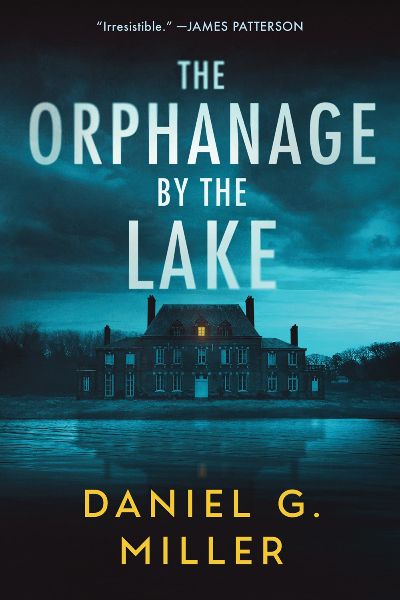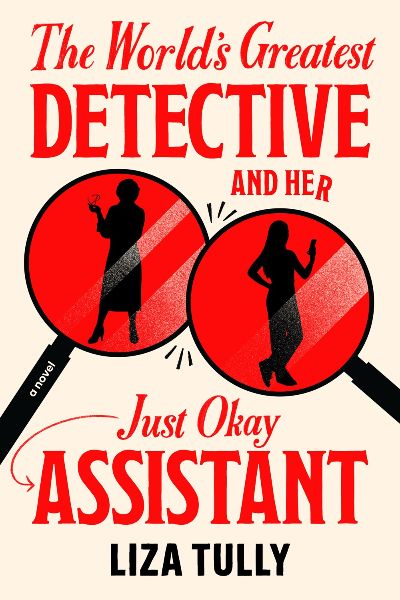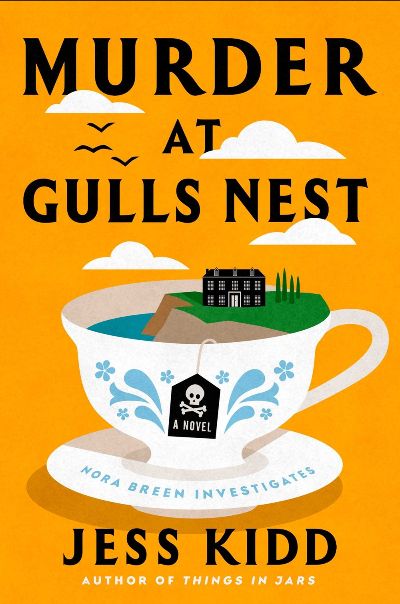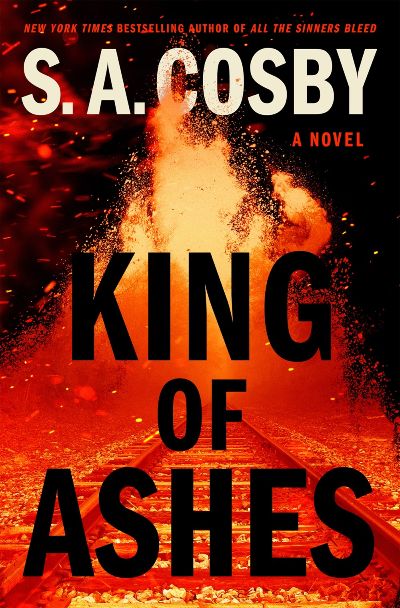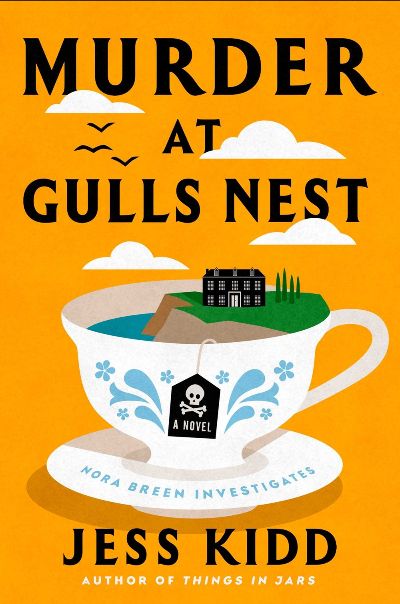It’s not easy being New Yorker Hazel Cho. Her parents, who are from Korea, find her private-investigation business brings shame on her family. Why can’t she be a doctor or lawyer? She lives in a small New York Chinatown apartment with a roommate who has a crush on her, and it’s not mutual. Not to mention that the rent is due and her latest client won’t pay and is turning violent. So when wealthy, commandeering Madeline Hemsley turns up looking to hire Hazel and will pay thousands now and a bonus of $100,000 if she finds Madeline’s missing goddaughter, Mia, by the end of the following week, it’s a dream come true. Well, financially it is, but definitely not professionally, as this case is cold. Madeline has hired multiple private investigators before who couldn’t find the girl, who is missing from a private orphanage—oops, children’s home. The police insist that Mia must have run away, but as Hazel investigates goings-on at the school and its wealthy benefactors, things don’t add up. Romance steals its way in when Hazel meets a dashing donor at a school benefit, and while things seem to be going her way at last, they soon turn scary. Miller brings us on a twisting path to finding the truth, one that immerses readers in both the life of a likeable, struggling young entrepreneur and the frustrations of a missing-person investigation, both to great effect.
Review
A traditional mystery full of quirky characters and humorous situations, this feel-good narrative is told by Gen Z’s Olivia Blunt, who remains ticked off with her famous boss (low wages, no opportunities for growth, hostile environment), Boomer Aubrey Merritt. Olivia dreams of being more than an assistant, but in the meantime she’s soaking up everything she can about the job from Aubrey (she has to retire or die someday, right?) while evaluating possible cases. Which is how she and Aubrey end up on Vermont’s beautiful Lake Champlain, where they’ve been hired to investigate the murder—or is it suicide?—of Victoria Summersworth, the matriarch of a family that owns a sprawling resort on the lake. Readers will enjoy the cast of largely middle-aged family members, employees, and general hangers-on as Olivia and Aubrey grill each and every one of them. The ending may be totally surprising as Aubrey delivers quite the denouement in the tradition of Agatha Christie.
It’s 1954, and most people in Great Britain seem happy to put the second world war behind them. Nora Breen, previously a nun and a nurse, asks to be released from her vow of 30 years to pursue Frieda, a young novice she is fond of who has left the monastery. Frieda promised Nora she would write—and she did, until suddenly she stopped. The only choice Nora has is to head south, settling at Gulls Nest, a small, shabby guest house in the seaside town of Gore-on-Sea, Kent, where Frieda had been living. One would think that Gulls Nest was all fresh air and new starts, but while the air is fresh, nearly every resident of Gulls Nest has their own secrets, some nastier than others, which Nora tries to pry from her fellow residents. But within days of arriving, Nora stumbles across a series of murders, offering the police her medical knowledge in helping to discover the murderer, an offer that initially is met with disdain (although by the end of the book, the police chief is seeking her advice). It’s a pleasure to watch Nora adapt to the secular world, use her immense empathy, and explore her rich inner life. It would seem that this is the first book in the series “Nora Breen Investigates,” something that will delight traditional and cozy readers alike.
A gripping family story packed with tension, violence, and secrets that’s sure to enthrall Cosby’s legions of fans. It introduces the Carruthers clan of Jefferson Run, GA. The town, known to local kids and jaded adults as Jefferson Got the Runs, used to be prosperous, but “now all we make are orphans and widows.” In a gray area in that regard is Keith Carruthers, who might or might not be widowed. His wife hasn’t been seen for years; he’s the owner of a crematory; and locals think he killed and disposed of her himself. Now that he’s been the victim of a hit-and-run and is comatose, his grown children, Roman, Dante, and Neveah, may never know what happened to their mother. But that’s the least of their worries after rich, successful Roman returns from Atlanta to see his father and tries to help Dante, who’s in trouble with ruthless local gangsters. Roman is used to more than a little white-collar sleight of hand in his financial advising business, but is quickly far out of his depth in the evil underbelly of his hometown. “We all fall short of grace, but the beauty lives in the attempt,” says Cosby (All the Sinners Bleed, The Best American Mystery and Suspense 2024), neatly summing up Dante’s increasingly bloody helping hand and the family’s striving to love one another even when the world gives them every reason to give up.
It’s 1954, and most people in Great Britain seem happy to put the second world war behind them. Nora Breen, previously a nun and a nurse, asks to be released from her vow of 30 years to pursue Frieda, a young novice she is fond of who has left the monastery. Frieda promised Nora she would write—and she did, until suddenly she stopped. The only choice Nora has is to head south, settling at Gulls Nest, a small, shabby guest house in the seaside town of Gore-on-Sea, Kent, where Frieda had been living. One would think that Gulls Nest was all fresh air and new starts, but while the air is fresh, nearly every resident of Gulls Nest has their own secrets, some nastier than others, which Nora tries to pry from her fellow residents. But within days of arriving, Nora stumbles across a series of murders, offering the police her medical knowledge in helping to discover the murderer, an offer that initially is met with disdain (although by the end of the book, the police chief is seeking her advice). It’s a pleasure to watch Nora adapt to the secular world, use her immense empathy, and explore her rich inner life. It would seem that this is the first book in the series “Nora Breen Investigates,” something that will delight traditional and cozy readers alike.
Zorie and Kayla, best friends since third grade, work as house cleaners in a so-so hotel, a position that allows them to engage in a bit of light stealing but not enough to keep them afloat. Which is how the two get involved in crashing weddings where they can pick up some major hauls (steal the money and pawn the goods) while not knowing a soul. Until one weekend they head off to work a rural wedding that they promise each other will be their last gig (“best friend’s honor” is their motto), only to discover that they are the only two Black women at an antebellum-themed wedding. Heading out of town as fast as they can, they are involved in an accident that sends them into temporary hiding as the news blares forth the story of the “Wedding Crash Killers.” Without any support from family, and no friends that can help, things start to escalate and the two head to New Orleans, leaving a trail of blood and bodies in their wake. Zorie and Kayla are forced to make tough decisions about their future and their friendship in this brilliant depiction of two young women who can barely keep alive financially. Completely compelling, full of dark humor, and providing a deep investigation into the nature of friendship, this book is high on my list for book discussions.
This is not an easy time for Sheriff Red Hammergren. She’s a widow in the job her husband once held, with the purse strings held by a toxically masculine board. It’s January in Minnesota, snowing with more predicted, serious drug problems in the town, and the comic relief of an insulting new webpage done by a leading citizen’s nephew. An elderly man with dementia has wandered off without his coat, there is a missing teenage girl, and the snowplows can’t keep up with what’s coming down. Red locates the man, but Missy, the teen, has reasons for running that are unclear. The danger Missy is in comes not only from the weather but from some really bad individuals. Red has to connect all the pieces—information from cold cases of the past, secrets in the present—while trying to keep everyone safe from the weather and from the danger she senses but can’t define. Red is a wonderful character, fighting to save her town with loyal deputies and a group of retired nurses. She succeeds in the end by her ability to listen. It seems we will see more of Red, one would hope in a more pleasant season.
At age four, Cléo Louvent tells her father that she wants to be as famous as Céline Dion. The only child of Franco-American academics, she is determined to become a celebrated pop singer against all odds. Despite her father’s warning to be careful of what she wishes for, Cléo ruthlessly climbs the ladder to musical success. As the novel opens, she is 32 and a global superstar. (Think Taylor Swift.) Cléo is also exhausted from fighting to stay on “top of the pyramid,” and is taking her first real vacation (costing her a half-million dollars) alone on a remote South Pacific island away from prying eyes, cell phones, the paparazzi, and her team’s incessant requests. In her solitude, she reflects on the journey that brought her here. French author Ventura’s first novel, My Husband, depicts a wife’s unhealthy obsession with her spouse. Her second portrays the making of a fame monster. The narcissistic and sociopathic Cléo is an awful person, an unreliable narrator extraordinaire, but she is also fascinating and darkly funny in her observations of celebrity culture. (“You have to reach a certain level of fame before you are allowed to be rude.”) Her eventual comeuppance is chilling but oh-so-satisfying. An intense and compelling psychological study on the costs of fame and ambition.
A delightful, quirky, and comic foray into Parisian life that’s a clear homage to Hitchcock’s Rear Window (and the even earlier short story of the same name by Cornell Woolrich). Here, the dynamics include Nathalia Guitry, a successful photographer who, having witnessed a murder while taking pictures, is unable to work. She seeks help from Doctor Faber, who assigns her a creative task: to record the lives of the people in the apartment building across from her. Nathalia sends the stories to Doctor Faber via mail (she claims she can’t bear to watch him read them), vignettes that many readers will find to be the most fascinating parts of the novel. Eccentricity abounds as we encounter a lyricist, a life coach, and a well-known cartoonist; in its own surprising way, the Parisian building is reminiscent of Whitter, Alaska, where all residents live in one building, keeping a watchful eye on one another. Even the doctor has his own odd interests, from smoking to collecting keys. But what about that murder? Readers will appreciate racing through this brief novel to get to the other—very rewarding—side.
A case from almost 60 years ago threatens the present in Gilbert’s (Schooled in Murder, 2025) latest addition to her terrific Blue Ridge Library mystery series. A true-crime author, Maureen Dryden, visits the library run by Amy Muir to give a book talk and pursue a cold case from the area for her next book. She’s famous for writing about an unsolved crime in her previous book, and her identification of the killer resulted in the accused dying by suicide. One of the folks Maureen’s trying to track down is Kurt Kendrick, godfather to Amy’s children. When Maureen dies, Kurt ends up at the top of the suspect list. Amy’s investigation goes badly from the start, and Kurt is a bit too angry and demanding when Amy asks him questions, scaring her. It seems that bringing up the past makes a lot of residents in town reluctant to provide answers. When Amy starts receiving death threats, she realizes she might have gone too far this time. Gilbert does a terrific job of keeping the pace while showcasing a realistic small town with relatable characters. The solution to the mystery might seem obvious, but Gilbert has a few twists in store that will keep the reader guessing until the last page.

